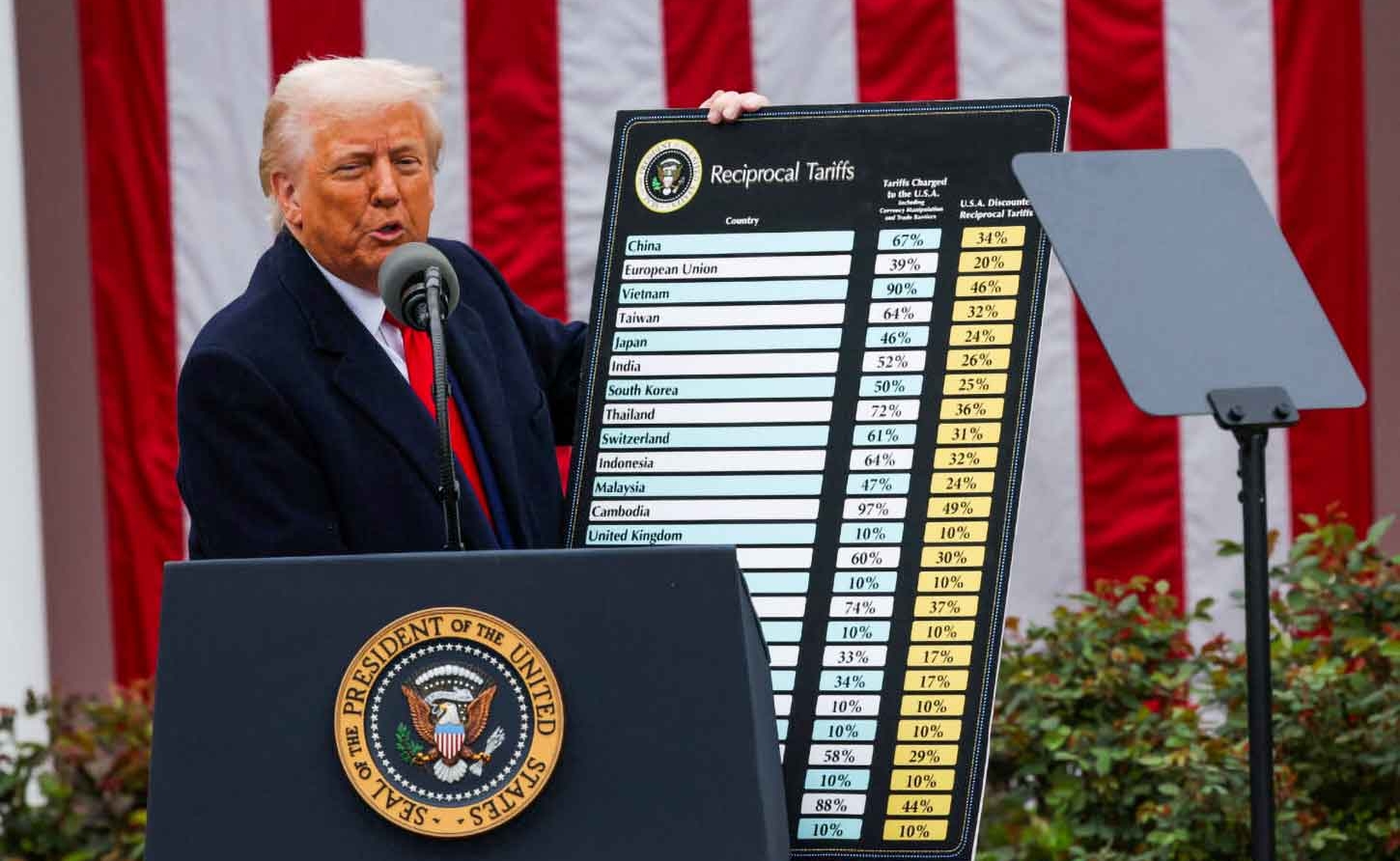CARICOM | TRUMP'S TARIFF TSUNAMI HITS CARIBBEAN SHORES AS CONSTITUTIONAL CRISIS LOOMS

MONTEGO BAY, Jamaica, April 5, 2025 - In a stark reminder that geopolitics knows no friends, only interests, Caribbean nations found themselves caught in President Donald Trump's sweeping trade offensive on Wednesday. The administration unleashed punitive tariffs across the global economy, with Caribbean nations facing a baseline 10 percent penalty while oil-rich Guyana bears a staggering 38 percent burden.
The far-reaching trade action represents a seismic policy shift that threatens to dismantle decades of global economic architecture and ignite widespread trade wars. Caribbean leaders scrambled on Thursday to assess the devastating potential impact on their vulnerable economies, with several nations already seeking urgent talks with Washington to mitigate the damage.
Trump's tariff tsunami washes indiscriminately across more than 180 countries worldwide, but reserves its harshest treatment for what the administration has coldly labeled "the worst offenders." China faces a punishing 34 percent tax, while European Union imports will be hit with a 20 percent levy.
The timing for Guyana proves particularly bitter. The punitive 38 percent tariff comes mere days after US Secretary of State Marco Rubio's goodwill visit, during which he met with President Irfaan Ali and lavished praise on the nation as "one of the most exciting places in the world right now," highlighting its transformational economic opportunities and strategic importance to American interests.
Trinidad and Tobago will face a slightly elevated 12 percent tariff, while nearly two dozen other Caribbean nations and territories find themselves subject to the baseline 10 percent penalty, including the Dominican Republic, Jamaica, The Bahamas, Haiti, Barbados, and various island nations across the region. Adding to the economic upheaval, Trump confirmed that a hefty 25 percent tariff on foreign auto imports would take effect immediately on Thursday.
As Caribbean nations reel from these economic implications, a constitutional storm is brewing in Washington. Multiple senators have stepped forward to challenge the legality of the president's unilateral trade action, arguing that Trump has vastly overstepped his executive authority.
At the heart of the controversy lies Trump's unprecedented use of the International Emergency Economic Powers Act of 1977 (IEEPA) to impose these sweeping tariffs. Critics maintain this interpretation of the law represents a dangerous constitutional overreach.
"This abuse of the IEEPA is clearly illegal," declared one prominent senator. "One person is not allowed to raise taxes. The Constitution forbids it." The senator's statement cuts to the core of the constitutional question – Article I explicitly grants Congress, not the president, the power to impose tariffs and regulate foreign commerce.
Legal scholars point out that Trump's tariff blitz faces two significant constitutional hurdles. First, the president lacks clear congressional authorization for such sweeping trade actions. Second, even if Congress had authorized these measures, constitutional limits on delegation of congressional power to the executive would still apply. The breadth and economic impact of these tariffs pushes well beyond what courts have traditionally allowed.
For small island economies heavily dependent on exports and tourism, these trade barriers represent an existential threat that could unravel years of economic progress. The sudden policy shift has Caribbean economists predicting significant ripple effects across sectors already struggling with post-pandemic recovery and climate challenges.
The constitutional challenge adds another layer of uncertainty for Caribbean nations caught in this geopolitical crossfire. Regional leaders now find themselves in the uncomfortable position of developing contingency plans while simultaneously watching to see if the U.S. legal system might invalidate the tariffs altogether. Meanwhile, trade experts warn that even a temporary implementation of these tariffs could cause lasting damage to established supply chains and trading relationships throughout the Caribbean basin.
As regional leaders prepare their diplomatic responses, the harsh economic reality becomes increasingly clear – in the high-stakes game of global trade, small nations often bear disproportionate costs when superpowers flex their economic muscle, constitutional questions notwithstanding.
-30-
